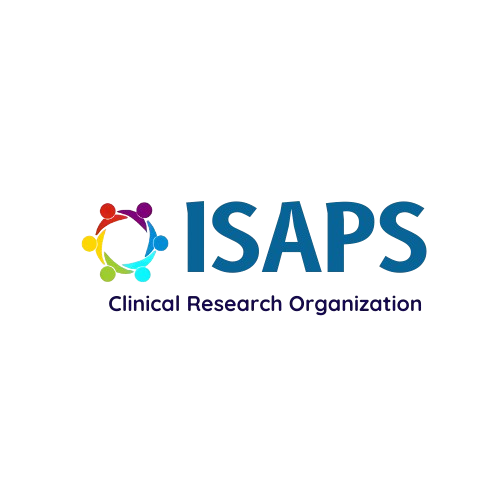Clinical Research Management
Overview of Clinical Research Administration
In the healthcare sector, clinical research management is essential to ensuring that medical studies are carried out morally, effectively, and in accordance with legal requirements. This procedure includes organizing, carrying out, and overseeing clinical trials to assess the efficacy and safety of novel medications, therapies, and medical equipment. Sponsors, investigators, and regulatory bodies must work together to manage clinical research effectively and guarantee that studies adhere to scientific and ethical standards.

Essential Elements of Clinical Research Administration :
- Ethics and Regulatory Compliance
In clinical research administration, compliance with regulatory regulations is essential. Regulations from regulatory agencies including the FDA, EMA, and ICH must be followed by organizations. The legitimacy and credibility of research depend heavily on ethical factors, such as getting informed permission and defending patient rights. One important function of ethical review boards (IRBs) is to guarantee adherence to moral principles. - Design of the Study and Development of the Protocol
The basis for effective clinical trials is a clearly defined study design and methodology. Protocols must be realistic, adhere to legal standards, and be supported by strong science, according to research administrators. The protocol should specify the goals, methods, inclusion/exclusion standards, and participant safety precautions. - Recruitment and Retention of Patients
Effective patient recruiting and retention tactics are essential for the success of clinical research. Plans should be created by research administrators to find qualified participants, interact with patient groups, and guarantee low dropout rates. Retention is improved by open communication, patient-centered strategies, and remote monitoring tools. - Integrity and Data Management
Credible study results depend on the collecting of data in a secure and accurate manner. Electronic Data Capture (EDC) technologies guarantee real-time monitoring, reduce errors, and expedite data entering. Data integrity and patient confidentiality are preserved when data protection laws like GDPR and HIPAA are followed. - Budgetary and Financial Administration
Effective financial resource management guarantees clinical trials’ long-term viability. Cost estimation for personnel, technology, site operations, and participant compensation is part of budget preparation. To prevent financial limitations, research administrators must keep tabs on spending, get sponsor financing, and allocate resources as efficiently as possible. - Digital Tools and Technology
Clinical research management has changed as a result of technological improvements. Research efficiency is increased by the use of Clinical Trial Management Systems (CTMS), blockchain for data protection, artificial intelligence (AI) for data analysis, and telemedicine for remote monitoring. Simplified procedures and increased data accuracy are guaranteed by integrating these solutions. - Management of the Site and Investigator
To guarantee resource availability and protocol adherence, research administrators must work closely with investigators and study sites. Clinical studies run more smoothly when proper training, site monitoring visits, and investigator participation are in place. - Quality Control and Risk Management
To reduce the possibility of mistakes and guarantee regulatory compliance, risk assessment and quality assurance are essential. Adverse event monitoring, frequent audits, and the application of standard operating procedures (SOPs) all contribute to the preservation of study credibility and patient safety.

Technology's Place in Clinical Research Administration
- Electronic Health Records (EHRs) and Data Management
Managing enormous volumes of data is one of the most important parts of running a clinical study. Researchers may now more easily access, exchange, and securely analyze patient data thanks to the replacement of traditional paper-based records with electronic health records, or EHRs. EHRs improve research team cooperation, lower mistakes, and enable real-time data collecting. - Systems for managing clinical trials (CTMS)
Research operations can be made more efficient with the use of Clinical Trial Management Systems (CTMS). Clinical trials can be effectively planned, monitored, and managed with the use of these platforms. Research administrators may keep an eye on patient recruitment, study progress, financial management, and regulatory compliance with CTMS systems. - Machine learning and artificial intelligence (AI)
By facilitating predictive analytics, automating data analysis, and detecting possible hazards, artificial intelligence (AI) and machine learning are revolutionizing clinical research administration. AI-powered algorithms support better decision-making, research protocol optimization, and patient matching for trials. Additionally, machine learning algorithms help identify data irregularities, guaranteeing the accuracy and integrity of research. - Blockchain for Integrity and Security of Data
In clinical research, data integrity and security are crucial. A decentralized, impenetrable ledger made possible by blockchain technology guarantees openness and confidence in study data. Clinical research administrators can improve data validity, monitor record modifications, and safeguard patient information by utilizing blockchain technology. - Decentralized Clinical Trials and Remote Monitoring
The development of wearable technologies and telemedicine has made remote monitoring an essential part of clinical research. Researchers can gather real-time patient data using decentralized clinical trials (DCTs) without having to make frequent in-person visits. This method increases trial efficiency, lowers expenses, and improves patient engagement. - Automation and Regulatory Compliance
An essential component of managing clinical research is regulatory compliance. Automation tools powered by technology make ensuring that regulations issued by the FDA, EMA, and ICH are followed. Real-time audit trails, digital documentation, and automated compliance tracking reduce human error and expedite the approval process.
Challenges in Clinical Research Management
- Compliance with regulations and ethical considerations
Ensuring adherence to strict regulatory criteria is one of the most difficult tasks in clinical research management. Regulations established by regulatory agencies like the FDA, EMA, and ICH must be followed by organizations. The procedure is made more difficult by ethical factors, such as patient rights and informed consent. Studies may be delayed, subject to fines, or possibly terminated for noncompliance with requirements. - Recruitment and Retention of Patients
It can be challenging and time-consuming to find appropriate subjects for clinical trials. Low recruiting rates cause many studies to fail, which can result in longer timelines and higher expenses. Another difficulty is keeping patients in the research since some leave because of adverse effects, logistical problems, or disinterest. - Integrity and Data Management
Managing enormous volumes of data appropriately and securely is a big challenge as clinical studies become more complicated. Research integrity is under risk from problems like insufficient records, disparities in data, and cybersecurity attacks. It is essential to maintain confidentiality, ensure data accuracy, and adhere to data protection laws such as GDPR and HIPAA. - Budgeting and Financial Restraints
Significant financial resources are needed for clinical research, and trial viability may be hampered by financial limitations. Increasing operating costs, a lack of sponsorships, and unforeseen expenses create funding issues. Inadequate financial preparation may cause studies to be delayed or discontinued, which would hinder the advancement of research as a whole. - Changing Regulatory Environment
The rules governing clinical research are always changing. Research teams may find it difficult to stay on top of evolving regulations, guidelines, and worldwide regulatory variances. Delays, denials, or extra expenses could arise from breaking the new rules. - Integration and Adaptation of Technology
Clinical research management has been enhanced by technology, although incorporating new methods and digital tools can be difficult. Adopting blockchain for safe data exchange, AI-driven analytics, and electronic data capture (EDC) platforms is a challenge for many businesses. Technological progress can be impeded by a lack of technical talent, excessive implementation costs, and resistance to change. - Site Management and Investigator
Clinical trial success depends on overseeing research sites and making sure investigators are involved. Data quality can be compromised and study durations delayed by problems such uneven protocol adherence, lack of investigator commitment, and resource shortages at research sites. - Internationalization of Clinical Research
Cultural disparities, varied regulatory requirements, and logistical difficulties are some of the difficulties that come with conducting international clinical trials. Language hurdles, ethical concerns, and variations in patient demographics make it more challenging to effectively manage international research.
